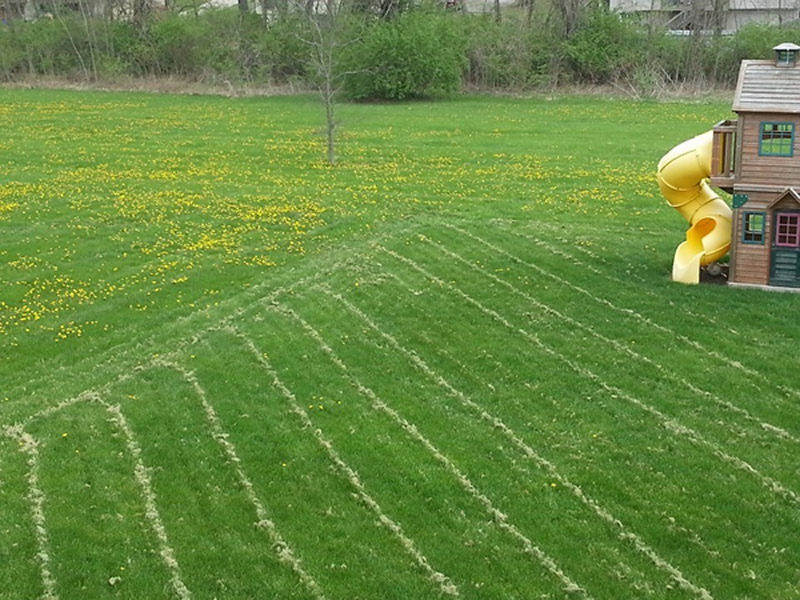Issue 1, April 20, 2020
Tips for Dealing with the Neighbors' Weeds
Recently, I read a social media post from a homeowner who was looking for guidance when dealing with his neighbor’s seemingly problematic weedy lawn. Unfortunately, many of the suggestions in the comments were alarming. There were numerous suggestions that herbicides secretly be used, more specifically Roundup. A couple things come to mind. First, this is not the appropriate herbicide to use in a lawn for controlling dandelion. Glyphosate, the active ingredient in Roundup, is nonselective meaning that it controls many types of plants including turfgrass, so damage will likely occur to the lawn. It could, however, be used for spot applications made directly to individual weeds such as a large dandelion, but really there are other herbicides that would provide greater control of dandelion. Also, keep in mind that some formulations of Roundup have additional herbicides to provide residual control. These should never be used on lawns. Second, no matter if you have the best of intentions or malicious intentions, it is illegal to apply a pesticide onto someone else’s property without their prior knowledge and agreement. Lawsuits can result. “Accidentally over spraying” from your property to theirs is illegal. Even if you are a licensed applicator, you need permission first.

So what can be done about the neighboring lawn that contains more weeds than you are comfortable with? Here are some options:
- Focus on pest management practices in your own lawn that will lead to a dense canopy turf that is less likely to have or show weeds. Maintain proper fertility. Mow high to shade out weeds. When necessary, preemergent herbicides can be used to prevent new weeds that can sprout up from the neighbor’s wind-blown seed.
- Change your perspective. Dandelions are some of our first bloomers and pollinators such as bees rely on them for food. Plus, they can be a source of food for us too, as dandelion greens are edible.
- Build a fence. Some say that good fences make good neighbors. If you can’t see it, you can’t worry about it.
- Offer to help maintain the lawn while approaching the subject gently. Perhaps your neighbor cannot physically handle the work or does not have the necessary resources. Maybe your offer to hand remove weeds or to split the cost of professional lawn care services or chemicals would be accepted.
- Get to know your neighbor. Understand what their goals are for the lawn. This kind of relationship building can help to ease the “turf war”.
- Politely educate your neighbor if needed. Perhaps you are a plant expert and you have spotted an invasive species that is proliferating on his property. He simply may not be aware of the situation or what specific problems that plant can cause. Knowledge is power.
- Contact local weed control officials within your city, town, village, township or even county for guidance and assistance. Nuisance weed laws may be in effect. The Illinois Noxious Weed Act requires the control of certain weed species. This article, “Regulated Weeds,” discusses this law and the included species at: http://hyg.ipm.illinois.edu/article.php?id=704. Additionally, mowing ordinances may be in effect and timely mowing may be required to prevent weeds from reaching a specific height restriction.
- Lower your expectations. No one is perfect and with recent corona virus concerns, we all have other important things on our minds right now.
Author:
Michelle Wiesbrook